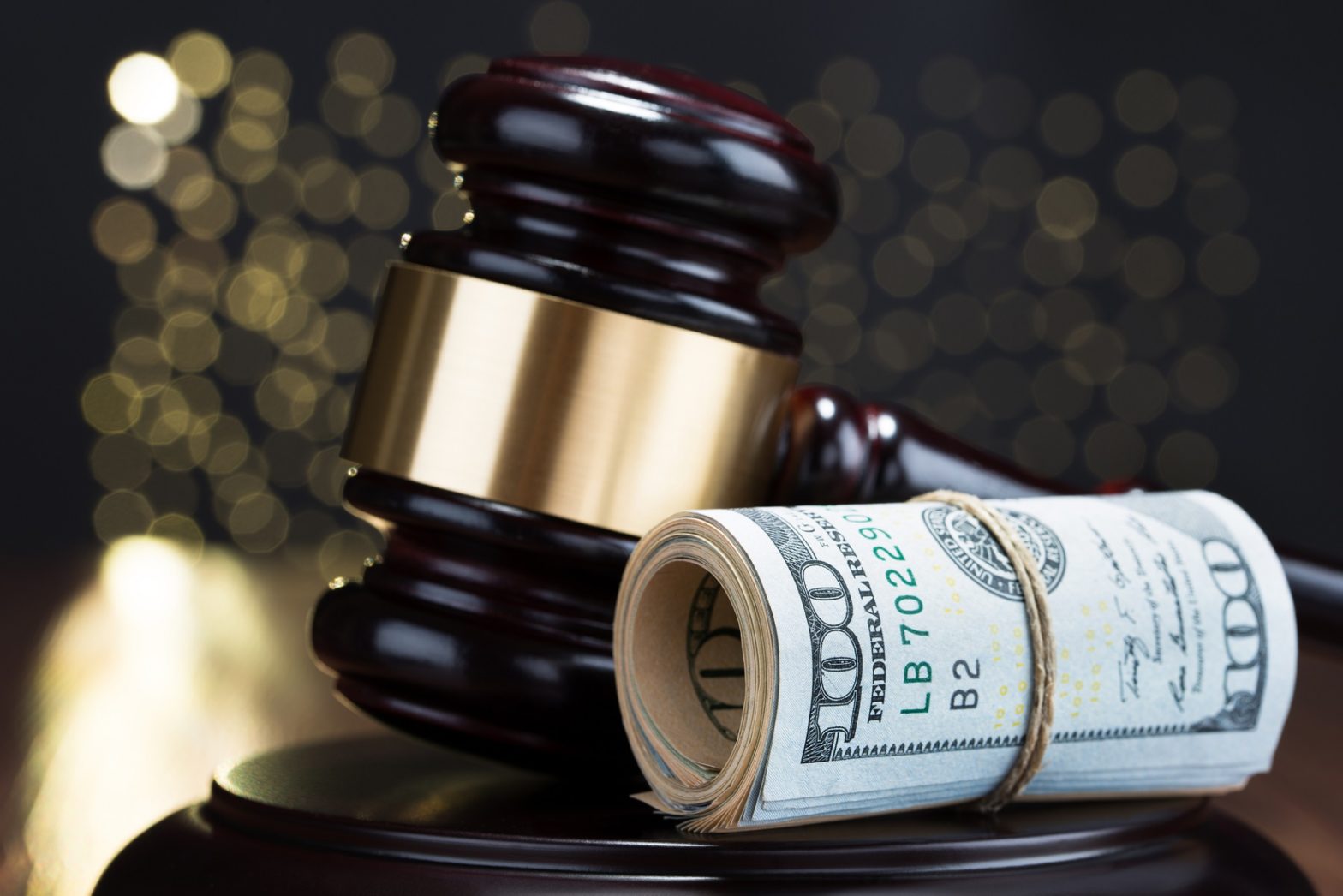It’s been a touch over five weeks in the sad story of the Midway Poker Tour and its disastrous debut event, which was held at a hotel in the Chicago suburbs in early October. The founder and owner of the tour, Daniel Bekavac, has seemingly gone to ground, which leaves 12 of the 31 players who cashed in this event shorted by Bekavac after receiving overvalued silver bullion as their prize payouts, for as much as a 30% shortfall on their expected winnings.
The stiffed players have been, as of last resort, in contact with one another regarding their possible options including legal action, but it’s not a sure bet that such a lawsuit against Bekavac and his now-failed tour will ever be filed. It’s going to be a risk-vs.-reward decision, and it’s not about whether or not Bekavac still owes money to the players — that part is a certainty — but whether a legal (or any other) will actually succeed in wresting cold hard cash from whatever assets Bekavac might have.
For those few of our readers who might not have heard the whole story, here’s a brief rundown: Bekavac had floated the idea of this tournament around the Chicago area for some time, according to one of my sources, pitching his concept for a mid-range buy-in event ($1,100), and a prize pool with a $100,000 guarantee.
However, there were… well… problems. Whether Bekavac had already acquired a reputation as a schemer (he had, according to at least one source I spoke with) wasn’t really the main issue. Instead, the problem was, how could he run a legal poker tournament in Illinois? There are exactly two legal avenues for poker in the Land of Lincoln. One way is to have a poker event at a licensed casino, but all the licensed casinos in Illinois that offer poker already run their own small events, and hence had no need for Bekavac’s scheme. The other way is to run it under Illinois’ charitable-gaming laws, which are designed to allow registered charities to generate funding by hosting casino-style events, including poker.
Illinois has quite a closet industry in charitable gaming, and it’s been in place for many years. Usually, a charity partners with a gaming-services provider, and the two hook up to rent a venue (usually a hotel or reception hall or similar) to host the event. There are three large gaming-services companies in the greater Chicago area, Windy City Gaming, Rockford Charitable Games, and Chicago Charitable Games. I spoke a couple of weeks back with the head of one of these three companies, and he shared with me that Bekavac had approached all three gaming providers, each of which turned him away.
The problem, it seemed, was that there was no way to reasonably run a poker tournament with such a high prize pool, of $100,000 or more, and not have it run afoul of Illinois’ payout rules for these small charity events. The main problem was that the state’s laws dictate that a gambler can’t win more than $500 more than he’s wagered; if he’s bought in for $500, he could only cash out for $1,000. Bekavac ultimately paid no heed to the warnings, instead finding a partner charity and a hotel with a pandemic-emptied banquet room ready to book, and off he went.
Obviously, a $100,000 prize pool poker tourney with tens of thousands of dollars spread across the top few finishers wasn’t going to fly. Instead of taking no for the correct answer it was, Bekavac decided he was going to run his poker event anyway, but with a thinly-veiled workaround: He’d pay the players in silver or gold bullion — this was never disclosed to the players in advance, by the way — then have a bullion dealer present at the event to reconvert the bullion into cash.
The state’s gaming regulators said no way; they weren’t going to allow Bekavac to put in such a skimpy workaround just to evade the rules that had been in place for years for everyone else. This didn’t stop Bekavac from trying to blame Illinois’ regulators when the whole thing came crashing down.
Yet foiled payout scheme or not, the larger problem turned out to be the overvaluation of the bullion itself. It turned out to be just silver, with no gold involved, but after paying out the first $1,600 in cash as the Illinois rules allowed, Bekavac then made up the difference with silver bars and rounds that he claimed were worth $35 an ounce. The 31 players who cashed received an additional payment in inflated-value silver of anywhere from $600 for the min-cashers to $53,460 for the event’s winner, Renato Spahiu.
The shit hit the proverbial fan when the first of the min-cashers began to be paid, late on Saturday’s Day 1, and realized they were being shorted by a goodly amount. That in turn led to a more severe situation the following day, when Bekavac was a no-show and the event’s hired tournament director, Jeremy Smith (formerly of the Heartland Poker Tour) also failed to show, likely after having the reality of Bekavac’s payout scheme sprung upon him the previous night.
One person who was present at the Sunday finale described the situation as a clusterfuck, and indeed it was. The partnered charity, an animal-rescue concern, was already volunteering its time and services, yet it fell to them to actually orchestrate the payouts with whatever silver bullion had been apportioned out at the bogus $35/ounce value. The charity ended up receiving just $640 for their work all weekend, and that came out of a tip jar filled up by players who began to understand the situation.
The final-table players finally decided to go ahead and complete the event, accepting the silver under protest, since the whole inflated-value thing was, in my opinion, fraudulent. After resurfacing a day or two or later, Bekavac issued a profuse apology and promised to “try to make things right,” but as most people understand, there’s a deep chasm between “try” and “do”.
Bekavac did “make things right” for 19 of the 31 cashers, but most of those were min-cashers, and the entire lot included only two final-table players, for relatively lesser amounts. Despite promising to make up the difference, which amounted to more than $50,000 for the remaining 12 players, Bekavac instead has gone what PokerNews referred to as “radio silent,” not communicating with the shorted players nor offering any concrete payout plans.
Meanwhile, the Midway Poker Tour’s online presence appears to be shriveling up; the tour’s home page has gone offline and its social-media pages haven’t been updated in weeks.
It all raises the question of what’s really going on. Experience tells me that the likeliest reason that Bekavac has gone radio silent is that he’s likely retained an attorney who’s told him that’s what he should do. That forces the jilted players to file an action to seek their proper compensation, and while winning such a suit is a slam dunk, collecting on it isn’t quite as easy to achieve.
The situation now bears some similarities to the failed Players Poker Championship, a Florida-based operation that went kaput in 2017 after failing to make good on roughly $300,000 in payouts due to top finishers in a widely publicized Aruba event. That led to a lawsuit being filed against the PPC, its two owners, and the Tampa Bay Downs poker room, which hosted and helped promote the PPC and its Aruba event. That case was settled earlier this year, with about $220,000 of the $300,000 getting paid back to the players, some of which came from Tampa Bay Downs, and the rest from the two PPC principals, one of whom had declared bankruptcy during the proceedings.
The current Midway Poker Tour has some similarities, yes, but also some differences. First, the amount the MPT players was shorted was only a little over $50,000, which brings in the possibility of any case winnings being wiped out by the expense of hiring attorneys. Second, while poker venue paid part of the settlement here, the venue in Illinois – the Sheraton Suites in Elk Grove Village, near O’Hare International Airport, did no promotion or advertising and likely has no liability whatsoever. There could be an open question as to whether PokerNews, which covered the event, might be a litigation target. Bekavac may have purchased advertising for his debut event from PokerNews, but as to what responsibility that confers onto PN, if any at all, is an unanswered question.
Though I have heard a couple of anecdotal reports that PN did “promote” the event through their online site and app, one has to wonder how effective that was. I mean, I live just a 30-minute drive away from where this event was held, and I never heard about its existence until the farcical payout situation hit social media. Meanwhile, I know several of the out-of-state players who traveled hundreds of miles to play in the thing, and they had to have heard about it somewhere.
Meanwhile, at least one potential revenue-generating avenue for Bekavac has also been shut off. Bekavac reportedly ran a club on the popular PokerBros. app, which became its own little scandal at the MPT event when he demanded that all registering players also join his online club. Once PokerBros. got wind of the ongoing farce in Illinois, they terminated Bekavac’s club.
It’s all such a sad mess that never needed to occur. Someone with experience and knowledge of Illinois’ gambling and poker regulations would have recognized all the potential red flags, and it seems clear from my sources that Bekavac was warned about some of those issues but proceeded anyway. Apologizing and “trying” to make good on the $50,000-plus still owed to players really isn’t good enough.

